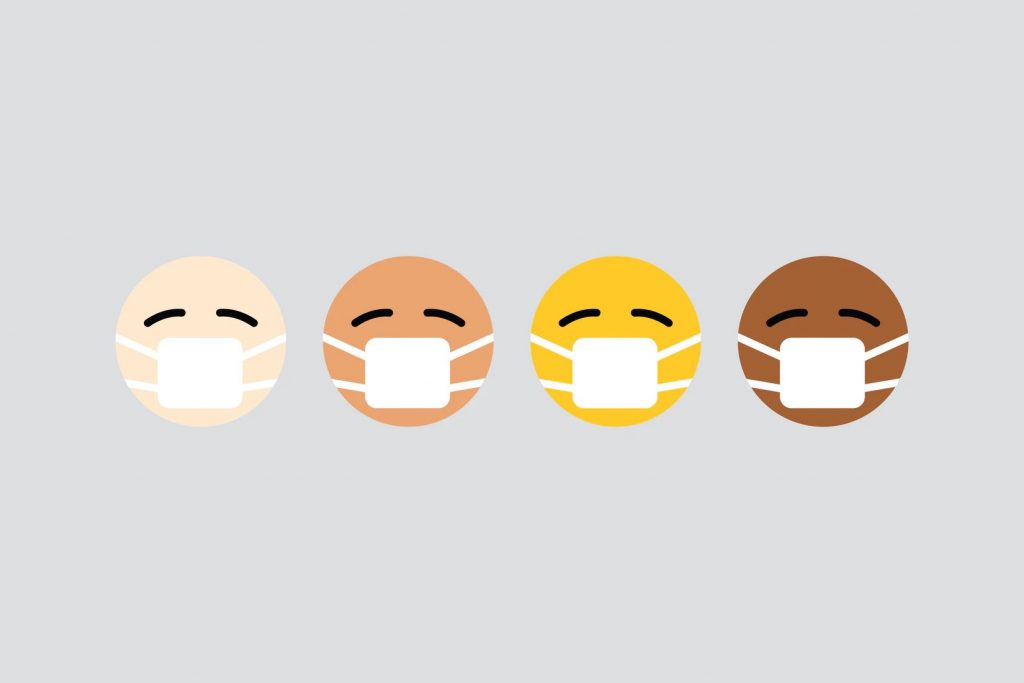Current information for patients and relatives
Category: Prevention
Author: Women’s Clinic Charité Berlin
Facts about Covid-19 infection
A new virus is going around the world
The novel corona virus was most likely transmitted from animals to humans. And as has often happened in nature, this virus can lead to serious illnesses in humans. One speaks of a zoonosis. This term is derived from the Greek words zoon (living being) and nosos (disease). Zoonoses are infectious diseases that are caused by bacteria, parasites, fungi, prions (degenerate proteins) or viruses and can be mutually transmitted between animals and humans.
There are various other corona virus species: these include MERS (Middle East Respiratory Syndrome) and SARS (Severe Acute Respiratory Syndrome). The latter triggered an epidemic in 2002/2003 with around 800 deaths. In these epidemics and pandemics (2002/2003), too, bats most likely transmitted the pathogen to humans via an intermediate host — the path that researchers now suspect with SARS-CoV‑2.

Viruses — what are they?
Viruses are not living beings! They have no nucleus and no metabolism of their own. This is how they differ fundamentally from bacteria. While bacteria have a nucleus and can reproduce independently, viruses always need a host. In other words, a living cell into which you can implant your genetic material (RNA or DNA). Only then can they spread with the help of their host — plant, animal, human. Something else is important to know: Viruses are very small. Smaller than bacteria or cells. Therefore, they can only be recognized with the help of certain scientific methods.
But as small as they are, they can be dangerous. Because in humans they are looking for certain cells in which they can spread. There they insert their genetic material and can reproduce in this way. For the reasons described, antibiotics are not effective against viruses, as against bacteria. Special vaccines must be developed against viruses which, with the help of the virus’ own genetic information, enable our body — our immune system — to recognize viruses and eliminate them from the body. This is a long and complicated process. That is why it takes so long in the Corona period before a vaccine can be found, developed, tested and brought onto the market.
The influenza vaccines, which are newly developed every year, are the main models for successful vaccines against viruses. These vaccinations have been established for decades and protect millions of people from infection with the dangerous flu virus every year. Various research groups are working on the development of a vaccine.

Vaccinate — but when
Vaccination even during cancer therapy that has already started After the diagnosis of cancer, it is generally recommended to check the vaccination status of the patient at an early stage and, ideally, to refresh the respective vaccinations before starting therapy.
- So-called live vaccines such as measles, mumps, rubella, yellow fever or varicella should not be administered during ongoing cancer therapy (chemotherapy), as the immune system can be weakened.
- So-called dead vaccines are generally also allowed during ongoing cancer therapy (chemotherapy). Examples of dead vaccines are vaccines against tetanus, diphtheria, whooping cough (pertussis), polio, meningococci, pneumococci, TBE, influenza.
- Annual influenza vaccination is indicated for all cancer patients.
Does the vaccination even work if I am undergoing cancer therapy? As studies show, the immune response to a vaccination at the beginning of a chemotherapy cycle is somewhat limited, but usually still good enough. In addition, the success of the vaccination with some vaccinations can be checked by checking the titer in the blood.
What is a live vaccine and what is a dead vaccine?
- The live vaccine contains “living”, but in the laboratory modified and strongly weakened (attenuated) pathogens, which, because they are alive, can reproduce in the body of the vaccinated. (Examples: measles-mumps-rubella vaccination, the rotavirus vaccine and the chickenpox (varicella) vaccination.
- In contrast, dead vaccines contain “killed” pathogens or fragments of pathogens or certain surface proteins or inactivated bacterial poisons (toxins). Dead vaccines cannot multiply (examples: vaccines against tetanus, diphtheria, whooping cough, polio, meningococci, pneumococci, hepatitis B, hepatitis A).
Special and general risk factors for corona infections
Cancer patients can be partially at risk
The following information is published in current information from the DKG and the DGHO, especially for cancer patients (source: DGHO, July 6th, 2020):
Specific risk factors for patients with blood and cancer diseases
In general, cancer patients have a higher risk of developing pneumonia from an infection with respiratory viruses than non-cancer patients. This probably also applies to infections caused by SARS-CoV‑2.
Potential risk factors that play a role in other SARS infections include
- severe immunosuppression
- Neutropenic phase
- Lymphocytopenia <0.2 x 109 / L.
Patients with hereditary immunodeficiencies or under current cancer therapies are also to be classified as persons at risk. Particular attention should be paid to these risk factors, especially given the fact that many patients with severe COVID-19 disease were older and lymphocytopenia was frequently observed.
General risk factors, including for patients with blood and cancer diseases
Many cancer patients also have one or more of the general risk factors for a severe course of COVID-19. These include:
- Age ≥65 years
- Living in a nursing home
Specific diseases, especially with pronounced symptoms:
- Chronic lung disease, or moderate or severe bronchial asthma
- Severe heart disease
- Immunosuppression
- Obesity / overweight (BMI ≥40)
- Diabetes mellitus
- Chronic renal insufficiency on dialysis / renal impairment
- Liver disease
- Current cancer therapies
Summary assessment:
If patients belong to one of these risk groups, the treating doctors will pay particular attention to the usual hygiene measures. If necessary, those affected must then be treated in separate rooms with increased protective measures. Cancer therapy can generally only be interrupted in the case of severe infections.

General principles and hygiene rules for cancer patients
Protect yourself safely — keep your distance
As described above, the corona viruses are mainly transmitted by droplet infection. Tiny components of the droplets, so-called aerosols, can also infect other people through the air. On the other hand, it is still unclear whether viruses can also be transmitted via smear infections such as door handles, shopping carts or other surfaces that have been touched by infected people. It is therefore extremely important to observe the hygiene rules drawn up by the government, scientists and doctors. This also and especially applies to cancer patients and their relatives and friends.
Here are the most important rules that cancer patients must adhere to under all circumstances:
- Avoid close contact with multiple people, especially people who do not come directly from your home environment.
- If you have to leave the apartment, please keep a distance of at least 1.5 meters from other people.
- Avoid large crowds.
- Pay attention to the hygiene concepts of the organizers and ask for detailed information on this.
- Wear a face mask consistently.
Maintain good body and hand hygiene:
- No shaking hands!
- No hugs!
- Thoroughly disinfect all objects that you have to touch
- Regular hand wash with soap for at least 30 seconds. Take advantage of hand disinfection options when you are in medical facilities. Find out more about the hygiene concepts on site.
Further precautionary measures
Vaccinations
- This much has been certain for a long time: vaccination is the only effective way of preventing many virus infections. Of course, this only applies if special vaccines exist, e.g. against the seasonal flu viruses. Since they are always changing, you have to vaccinate again every year!
- Research groups around the world are researching the development of effective and safe vaccination protection for the corona virus (SARS-CoV‑2).
- Then you can also have further vaccinations. And this is especially true for all people who have either chronic illnesses or acute illnesses of the immune system.
- The StiKo, a state institution, writes on its website what is currently recommended.
Recommendations of the Standing Vaccination Commission
The recommendations of the STIKO are usually published once a year in the epidemiological bulletin of the RKI (Robert Koch Institute) and on the RKI website. Detailed reasons for the recommendations have been published since 2004. Further statements by STIKO on individual vaccinations can be found under the heading “Messages”. On the vaccination pages of the RKI there are also a number of FAQs on general topics about vaccination and individual vaccinations. The FAQs summarize frequently asked questions from citizens and doctors that have been answered by the Robert Koch Institute. The publication of the answers is intended to provide broad information on the various aspects of vaccination for citizens and the professional community. These are not the recommendations published by STIKO.
(Source: RKI)
And, when things get going again soon: Traveling as a cancer patient — the rules
What do I have to consider if I want to travel?
If the treatment of the cancer was a long time ago, there is usually no relevant increased risk of infection compared to non-cancer patients or healthy people. Nevertheless, the vaccinations and hygiene measures officially recommended for the respective country of travel should be taken. In general, it is advisable to also refresh the polio, rabies, hepatitis B and A vaccinations. However, patients undergoing chemotherapy can have an increased risk of infection. In addition, certain vaccinations (live vaccines such as yellow fever) that may be recommended cannot be carried out. Therefore, please discuss this with your doctor at an early stage. In addition, there are usually other important aspects, such as blood tests, that must be taken into account during or after chemotherapy.
The urgent advice:
Therefore, please discuss all questions about travel with your doctors
How do I know my symptoms are from cancer and which are from COVID-19 or another viral disease?
This can be difficult in individual cases, so we ask you to report all symptoms to your doctors, even if you may not associate them directly with cancer, cancer therapy or a viral disease pleural effusions) or cancer therapies occur (e.g. polyneuropathy, taste disorders with paclitaxel). In addition, various other viral (flu viruses) and bacterial diseases (e.g. pneumococci) can cause various forms of pneumonia. Therefore, please go to your doctors immediately so that they can initiate the appropriate treatments with the help of differential diagnoses.
Strengthening strength — promoting well-being!
These are the most important rules for all cancer patients. The treatments demand a lot of strength from everyone. With good preparation, variety in life and careful treatment of yourself, everyone can do a lot to ensure that the treatments work well and lead to the goal. Travel can also support this. You don’t have to go on a trip around the world right away. There are many obvious destinations in our country where you can relax very well.

